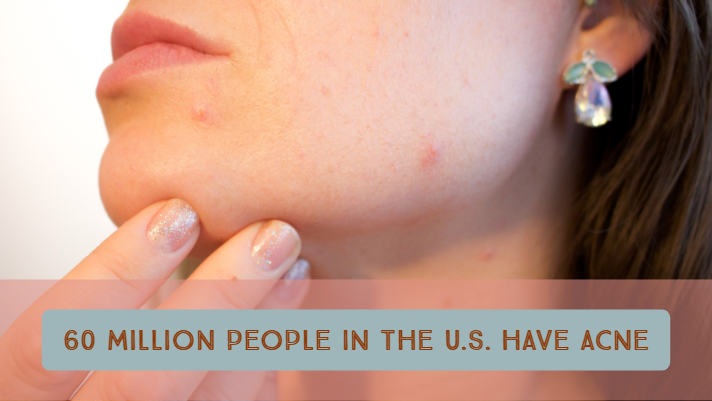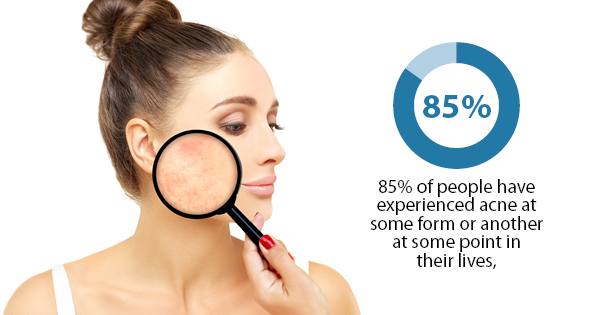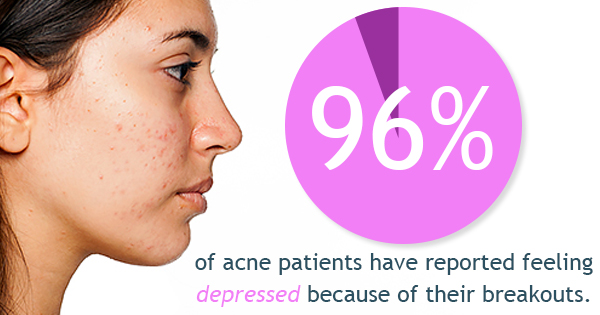
Cystic Acne: Dos and Don’ts to Follow
Acne is an incredibly common skin condition, but that doesn’t mean that living with it is easy. If you suffer from cystic acne, you may suffer from low self-esteem while struggling with discomfort and physical pain. But if you have cystic acne, you might not even realize that your form of acne is a bit different from a run-of-the-mill breakout — and needs to be treated differently. In today’s post, we’ll learn a bit more about this form of acne, as well as some tips that can relieve some of the adverse effects of this skin condition.
What is Cystic Acne?
Although 60 million people throughout the U.S. have acne, cystic acne is a rarer, more severe form of this skin condition. It’s considered to be the most advanced form of hormonal acne and is characterized by painful cysts deep down in the skin, as well as permanent scarring for many patients. What’s more, cystic acne does not simply disappear on its own; it needs to be properly treated by dermatology professionals to provide the patient with relief. Often, topical treatment for acne of this kind is not effective, though every patient’s skin is different. If you need help with acne and suspect that it may be cystic, this dos and don’ts list can help to get your skin on the right track.
If You Have Cystic Acne, Do…
- Try to Reduce Stress: It might sound next to impossible, but it’s important for cystic acne sufferers to do what they can to relieve sources of stress in their lives. That’s because cystic acne often results from hormonal imbalances, which can flare up when you feel anxious or overwhelmed. While you can’t alleviate all hormonal fluctuations, doing what you can to promote a sense of mental well-being can actually have a noticeable effect on your skin.
- Gently Exfoliate the Skin: Many cystic acne sufferers may also have sensitive skin, particularly because this inflammatory skin condition culminates in acne that is painful, red, or itchy. You will likely be unable to use the same type of products your friends do, including exfoliants. Abrasive exfoliants are simply too rough for you to use, so adopt a gentler method instead. Some dermatologists will recommend specific products, while home remedies may work better for some. Avoiding exfoliation may make you miss an opportunity to slough away dead skin cells, which are one essential component of your acne. If you’re able to remove some of those cells, you may be able to clear up your skin a bit based on that alone.
For Cystic Acne, Don’t…
- Pick or Squeeze: In general, you need to keep your hands away from your face to avoid spreading bacteria or contaminating your skin further. This is a good rule of thumb for all types of acne, as picking and squeezing can just make matters worse (as tempting as it may be). Doing those things to cystic acne is actually the worst thing you can do, because the acne is located so deep beneath your skin’s surface layer. Popping these pimples can make inflammation worse and can create bloody bumps that are extremely hard to cover. What’s more, these spots can easily scar. For the love of your skin, resist the urge to pop!
- Forget to Moisturize: It might sound counterintuitive to put something that feels a bit greasy on your face, especially since many types of treatment for acne are meant to dry you out. But your skin needsmoisture. Otherwise, your skin will actually produce more oil to compensate, which creates (you guessed it) more acne. Refrain from over-washing your face, as this will strip your skin of natural oils it needs, and use a moisturizer recommended by your dermatologist. Drink lots of water and stay out of the sun when possible, too.
Cystic acne sufferers, in particular, typically need to pursue professional treatment for acne. If you do receive acne treatment from a qualified professional, you will likely be able to regain your confidence and your lease on life. For more information on treatment for acne and our virtual acne program, please get in touch with us today.








No Comments
Sorry, the comment form is closed at this time.